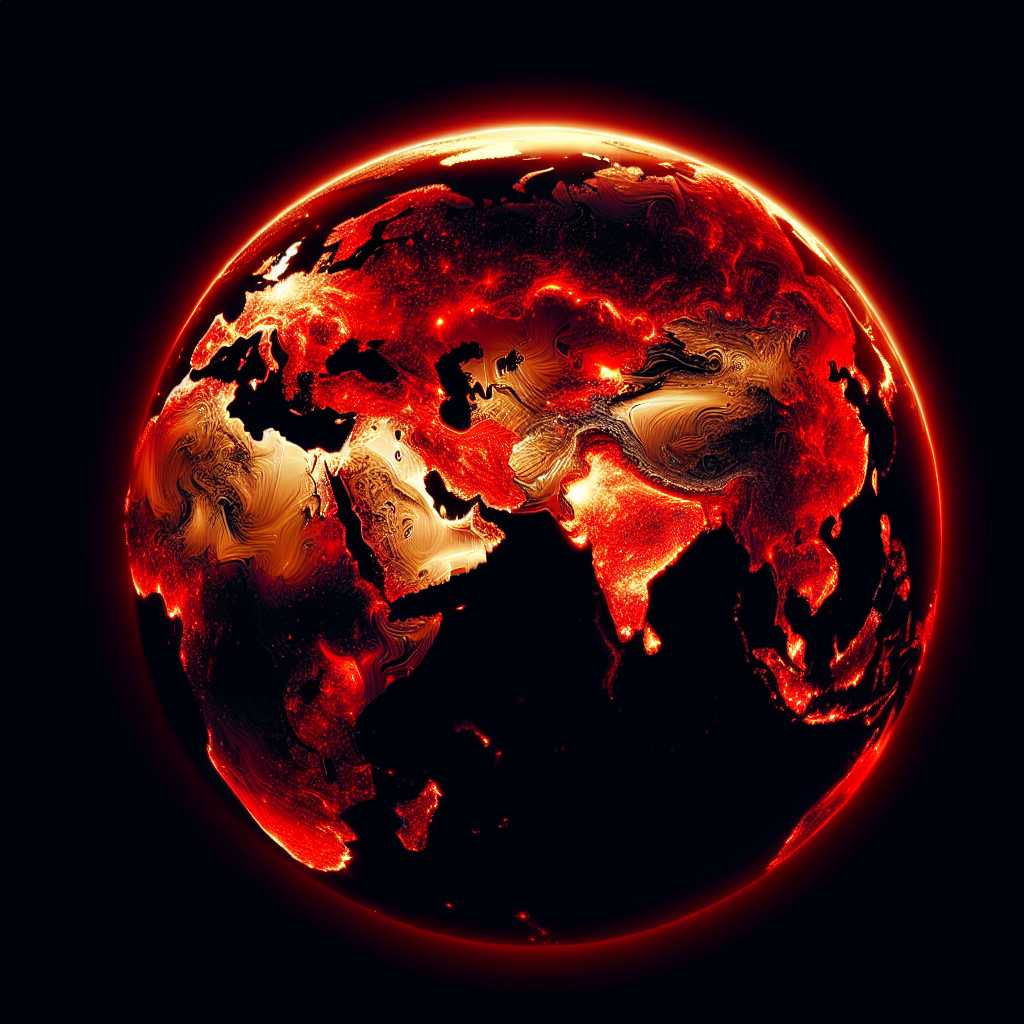The Hypothetical Scenario of World War III
Global concerns about escalating geopolitical tensions among major powers have brought up discussions around a hypothetical World War III. While it remains a speculative concept rather than reality, the implications of such a conflict would be profound, potentially encompassing various aspects ranging from military dynamics, global alliances, economic ramifications, and human impact.
Understanding World War III: Context and Possibilities
At the culmination of every major conflict in history, there is often speculation about the next. Since World War II ended in 1945, the notion has periodically surfaced of a third global conflict that could mirror or surpass the scale and devastation of its predecessors. In the contemporary context, World War III refers to a potential large-scale and possibly nuclear war involving major world powers and alliances. The primary concern lies with the destructive modern weaponry that could lead to catastrophic loss of life and environmental damage unrestrained by previous norms or treaties.
Geopolitical Hotspots and Potential Flashpoints
Various regions worldwide have been identified as potential flashpoints that could escalate into broader conflicts. These include tension-prone areas like Eastern Europe with the ongoing conflicts involving Russia, the South China Sea with territorial disputes among China and other nations, the Middle East with its complex web of allegiances and hostilities, and the Korean Peninsula that remains technically still at war since the Korean Armistice Agreement.
In any of these scenarios, misunderstandings or miscalculations could quickly spiral out of control due to primarily two factors: nationalistic fervor causing policymakers to take uncompromising stands and advanced military capabilities enabling rapid escalation beyond conventional combat.
Military Dynamics in a Modern Global Conflict
With advancements in technology since the last world war, military strategies and tactics in a would-be World War III would involve cyber warfare, unmanned systems, space warfare, and hypersonic weapons. Nations have developed arms that can potentially overwhelm traditional defenses or incapacitate crucial infrastructure without direct kinetic engagement. This marks a shift from large-scale, ground-force movements to multifaceted campaigns involving land, sea, air, cyber, and space domains.
The role of nuclear weapons looms large too, as they act as both deterrents to war and as ominous harbingers of annihilation if deterrence fails. Theoretically, mutual assured destruction aims to prevent direct conflicts between nuclear-armed states, but the possibility of misjudgment or accidental launches has worried strategists for decades.
Global Alliances and International Relations
Critical to understanding how a hypothetical World War III might unfold is studying global alliances such as NATO, US treaty alliances in Asia, or defense agreements among Russian allies. In an interwoven international system where local conflicts can have far-reaching implications, how these alliances react could significantly influence outcomes.
Issues like Article 5 of the NATO treaty—which states an attack against one member is an attack against all—could rapidly expand a localized incident into a global confrontation. Similarly, bilateral defense obligations could see superpowers dragged into fighting on behalf of allies or in defense of interests abroad.
Economic Impact of Global Conflict
Economically, with supply chains already fraught from recent events like pandemics and geopolitical rivalries, any global conflict risks substantial disruption to commerce and trade. Military expenditure would skyrocket while resources would divert from civic needs to support wartime economies. The potential exponential increase in cybersecurity threats poses an additional concern.
Collectively such economic factors can cause not only shortages and instabilities but can also critically wound the global economic framework regardless of direct involvement in hostiles.
Humanitarian Considerations and Civilian Impact
The humanitarian cost of a third world conflict would likely be staggering. Recent conflicts have given insight into refugee crises managed by an international community strained under far less widespread episodes than a global war would trigger. Furthermore, unlike earlier eras where direct civilian exposure in homelands was limited for many countries involved (notably during WWII outside of Europe), today’s integrated and media-connected society would feel immediate impacts.
There could be an unprecedented demand for humanitarian aid both during; and in any aftermath; medical attention, shelter, food security issues would become front-line concerns for the conflict-ridden and neutral states alike.
